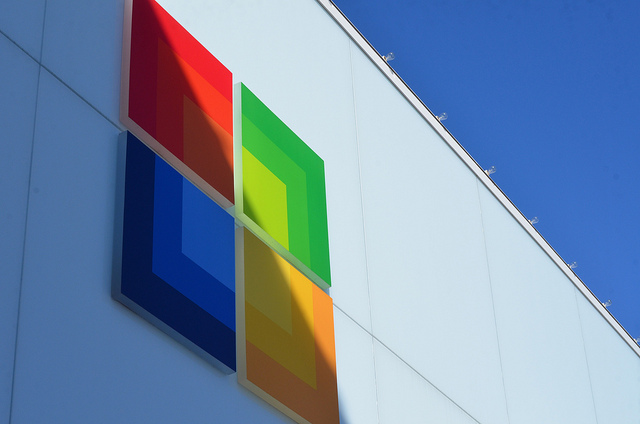 CLOUD
CLOUD
 CLOUD
CLOUD
 CLOUD
CLOUD
Eyeing the lucrative market for government cloud computing contracts, Microsoft Corp. today unveiled custom editions of its Azure Stack infrastructure and Microsoft 365 product suite for U.S. agencies.
Azure Stack, which is an on-premises version of its public cloud infrastructure, was announced back in May 2015 and finally released during last September’s Microsoft Ignite conference. Azure Stack bundles the company’s cloud software with integrated systems from companies including Dell EMC, Hewlett-Packard Enterprise Co. and Lenovo Group Ltd. With Azure Stack, organizations can run a smaller version of the Azure cloud from within their own data centers, tapping into Microsoft’s public cloud resources for a little extra oomph when needed.
As for Microsoft 365, this bundles familiar software such as Windows 10, Office 365 and other enterprise mobility and security features that have been customized for government users. Microsoft offers other versions of the suite for small businesses, enterprises, educational users and nonprofits.
Microsoft’s updates are timely because the company is facing competition from its main rival Amazon Web Services Inc. in the race to sign up government customers. Last November, for example, AWS secured a lucrative contract worth a reported $600 million to provide a secret cloud region for the U.S. Central Intelligence Agency.
The battle for government cloud business is growing increasingly intense, in fact. One example: The recent granting of a $950 million contract to an AWS partner, Rean Cloud, by the Pentagon came under criticism from rivals such as Oracle Corp. for appearing to favor AWS, though Rean itself has said the contract does not specify AWS as the cloud provider. Now, according to a Washington Post story late today, the Pentagon has slashed the contract to just $65 million, with plans for just a prototype for a single agency for now.
Because of the stringent compliance and security requirements of government agencies, the Azure Government cloud typically receives new products and updates several months after they land on the public cloud. For those who have been eagerly anticipating the arrival of Azure Stack, the wait is almost over, said Natalia Mackevicius, director of Azure Stack. She promised Azure Stack would be made available in “mid-2018,” without providing an exact date.
“Azure Stack will integrate with Azure Government, enabling consistent connections to Azure Government across identity, subscription, billing, backup and disaster recovery, and the Azure Marketplace,” Tom Keane, head of global infrastructure for Azure, wrote in a second blog post. “Azure Stack will also enable government customers to seamlessly use and move amongst public, government-only, and on-premises cloud environments to rapidly respond to geopolitical developments and cybersecurity threats.”
The availability of Azure Stack should enable government customers to move more workloads into the cloud than they were previously unable to do, said Holger Mueller, principal analyst and vice president of Constellation Research Inc.
“Traditionally the competition for the public sector infrastructure as a service load was addressed with dedicated data centers, but that cannot address state load and demands,” Mueller said. “So the capability to run that load locally caters to the existing best practices and skills of government IT workers, security and data residency needs and fears.”
To accommodate an expected glut of new government Azure Stack users, Microsoft is also taking steps to boost secure connectivity to its public cloud data centers. The company said its ExpressRoute service, which provides a direct connection to its data centers that bypasses the public internet, is now available in Phoenix and San Antonio.
Continuing with the announcements, Microsoft also said it’s planning to make two new Azure Government regions available in the U.S., bringing the total number to eight. Microsoft didn’t say where these regions would be located, but reiterated that they’ll be able to accommodate classified data.
Currently Microsoft offers three types of government cloud that serve to keep data isolated within separate data center facilities in the U.S. These include its Government Community Cloud for local, state and federal agencies; Government Community Cloud High for agencies working with highly classified data; and the Department of Defense cloud for intelligence agencies.
THANK YOU